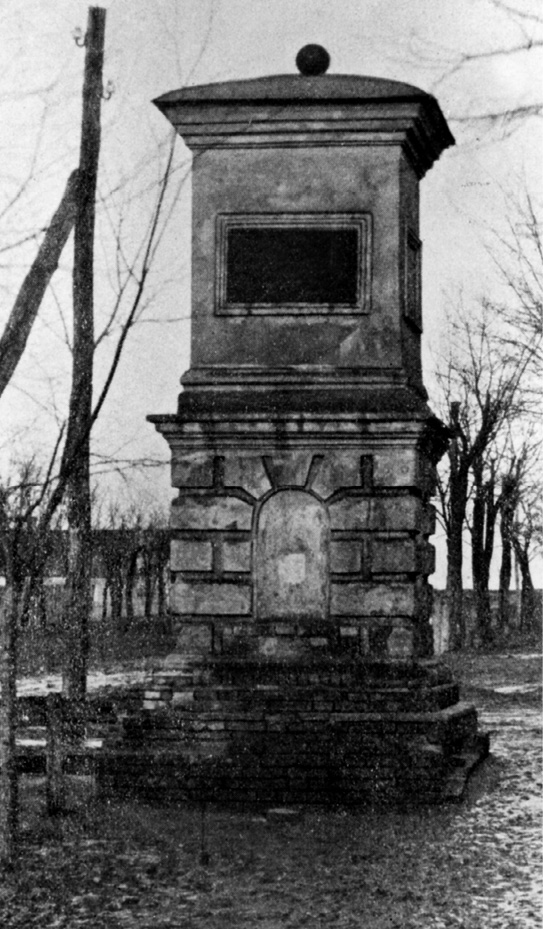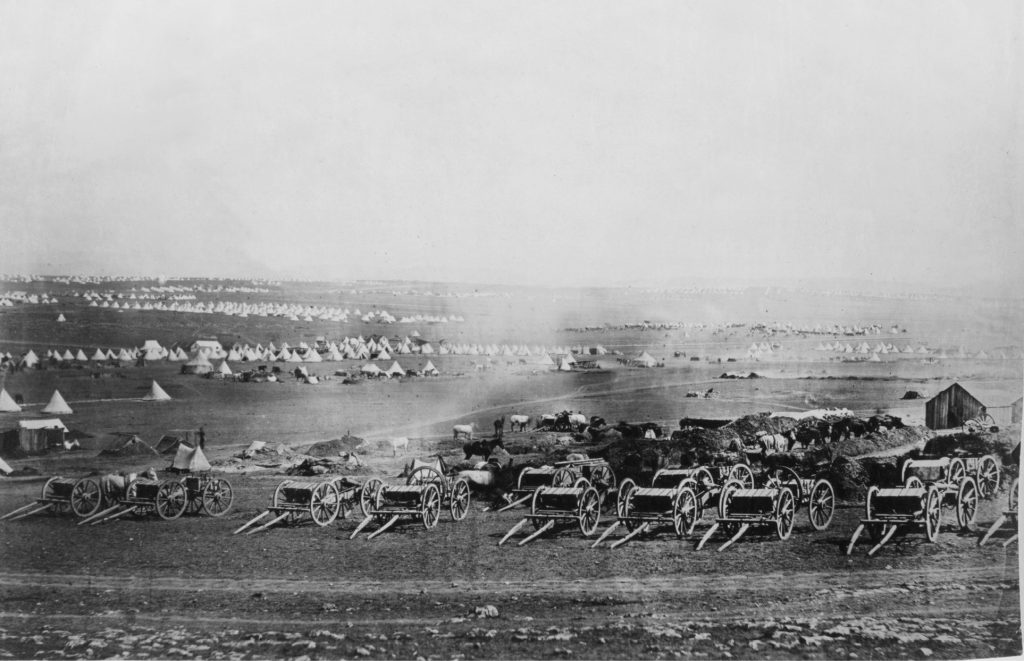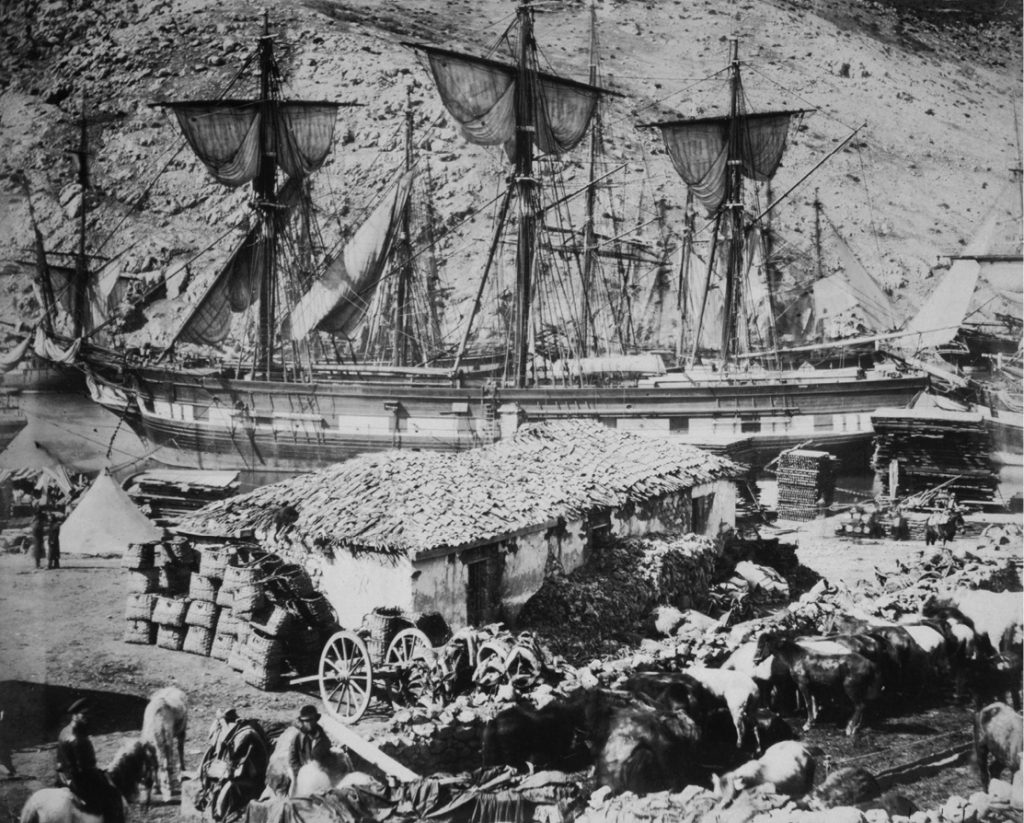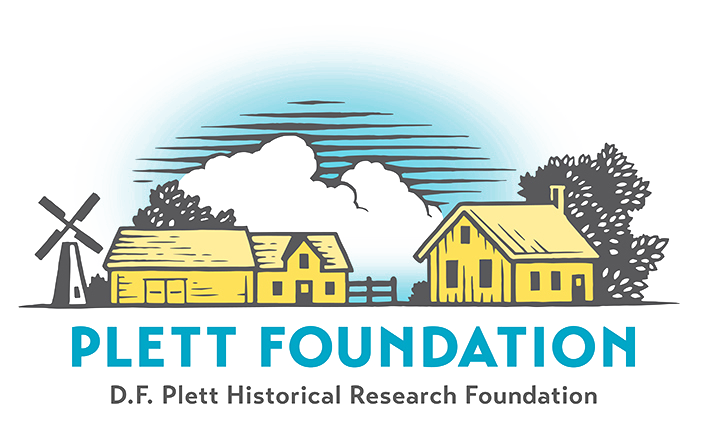Something of My Experiences
Cornelius Fast
As some of my children have asked me to, I will write of some of my experiences.1 I was born in a village called Friedensdorf, South Russia, in 1840, June 24 (New Calendar).2 I was my parents’ first child, and at the age of one year, I went to Tiegerweide with my parents, where my father worked as a village blacksmith. In 1845, when the village Kleefeld was first started, my father helped to settle Mr. Johann Willems, and in 1855 helped David Cornies of Orloff on his estate “Altehirr” as blacksmith.

That was at the time that Turkey and the Crimeans were at war, and because Turkey was in debt, England and France helped for fear of their money; therefore, Russia had powerful enemies. As the Sea of Azov enters into the Black Sea at the Crimea, they also came across the Sea of Azov up to Berdiansk, and shot into the Russian villages that they could see. Opposite us was a village twenty-four versts away (a verst is 3,500 feet), towards the sea. The farmers had long ago gone farther inland, so the government had put the Cossacks on guard to watch that the enemy would not come into the land unnoticed.
One day they shot into the village again and we could see the smoke of the gunpowder clearly, and when it rose higher, we could hear the loud bang. The sound, or echo, was likely carried by the sea. Molotschna was partly hit also, and at our place it was six verst wide. The next day all was quiet, and then Cornies drove over there to see what damage had been done. (David Cornies Jr. was manager and son of David Cornies Sr. of Orloff.) He got there and saw some soldiers who were taking the gunpowder out of a bomb which had not exploded. They took over ten pounds out of it. Then he bought the bomb from them. It was not round like the other four that he had bought before, so it could not be emptied the same way. It did not have a brass stopper, like the others had; it was pointed, so one could hardly see where it had been loaded.
One day Cornies came to the blacksmith shop to ask Father’s advice about his toothache. Father said, “The advice I would give you, you would not like: just have the tooth pulled.” “Well, that advice was told to me by other people too, so I’ll go and get it pulled.” Then he went and sent orders to the stable to have the servant harness up a wagon, as he wanted to go to Orloff. He was going to Altonau to have the tooth pulled by the dentist Wiens, and then to Orloff for a visit.
Now there were some people there, and he asked them to put the bomb on the wagon, when it was ready, as he would take it along to Orloff. Then he and his wife went to get ready. The people looked at the bomb, and noticed more powder rolling out. Then Jacob Reimer, the windmiller, came running to the shop to ask Father what kind of tools would be best to remove the powder that was left, as Cornies wanted to take it along and he wanted it empty. They agreed that a hammer and a long, thin rod would do. He took them and went. Shortly after, Father followed, and then he, Cornies, and Reimer and a few Russians and the servant carried the bomb and put it into the shop. They had decided that as it was open at the top, if fire was put in, it would burn itself out. Then Father said, “Take it outside.” Later he said he had thought only of the powder smoke. Then Cornies told the servant to take it outside. The servant took it outside and put it about three feet from the door. Then Father went with the hot coals, and when he saw how we were all hiding ourselves, he stopped and asked Cornies, who stood closest to the door, if there was still a lot of powder left in there that would cause an explosion. “No, no,” said Cornies, “there is very little in there,” and he went but he called back, “but take care, as it is still dangerous.” Father said later he thought the smoke was the danger.
Now, he had the long-handled scoop with the coals, carefully put it on the rim, and was ready to run into the shop. He never made it. He fell instantly. The terrible bang scared me out from behind the blower, out of the door. I cried, “Now Father has been killed!” “No, no,” said Cornies, “He won’t be dead.”

Our home was about fifty feet away, and Mother and our neighbour, Mrs. Hamm, who lived in the same house, had both been sitting looking out. When Mother heard the crash, she looked out the door and cried, “Now the shop is blown in the air and Father and Cornelius as well!” The smoke had hidden the shop, and Mother was with me before any of us were even out of it. They were all stunned or shocked and no wonder, as the explosion had left hardly a pane of glass in the windows. In our house and even in the strong granary, and about fifty feet on the other side of the shop, windows were blown out. One piece of glass had hit Father in the right leg; it left a deep gash as wide as a finger, and the left leg was gone to the bone, so that the foot was left hanging on a tendon. One piece of glass nearly hit Mr. Hamm, who had been outside; it passed near his head. One piece had cut through an alley of trees six rows deep. On the other side was the melon field, where the man who took care of it heard the crash, looked up, and saw the sky. Part of the hut’s roof was torn off. He was soon at the shop and scolded, ‘‘Had I been here, none of this would have happened. None of you know what gunpowder can do.” He had been a soldier.
Father was now bedded in the shop and his leg was wrapped to the best of their knowledge with pig and chicken manure and spider web, which was used to stop the blood flow. Cornies asked Father what was to be done with him now. Father said he wished he could be taken to Dietrich Wiebe’s in Lichtfelde. If Father had to die among so many Russians, it would have been hard for him, as those who know Russia will understand. Since our horse was in with the wild horses on the field, they put three horses to a rack wagon (Leiterwagen).
The wagon was filled with hay; Father was put into it. Reimer was driver, my mother and I were the helpers, and quickly we were on our way. That was Tuesday. We drove, Cornies ahead of us, at full speed, till we got to Lichtfelde. We arrived around four in the afternoon without having fed the horses. After Mr. Wiebe had attended to Father as best he could, he asked Father, “What to do now, get the doctor?” Father said, “You know best what should be done with me, but I think it is too late.” Mr. Wiebe said softly, “I think so too.” Then we fed the horses, and after dinner, Reimer and I drove back, and were home Thursday before lunch.
Our horses were with a herd of wild horses and came home only twice a week, and were home now. I harnessed our “Walloch” and drove with my three sisters after lunch back to see Father. We arrived Friday at noon. There lay Father in a coffin. He had died Thursday, and was buried on Friday. He was so swollen up that his face did not look like a human face. His mouth was a large, round hole. His coffin was not opened at the grave, as they felt his body would be shattered.

We stayed at Altehirr for seven weeks. After that, I worked for about three months at the Peter Warkentins’ in Kleefeld, and then two years with Dietrich Wiebe in Lichtfelde, where my father had died. Then I worked two years in Blumenort as a carpenter, and then in Lindenau as wheelwright (Stellmacher). Helena Born also worked there, and we decided to get married. That was in 1861. She died in 1873 of smallpox (schwarze Pocken). Then that same year I married Helena Fehr, from the Old Colony, and in 1874 we went to North America.
After holdups caused by the Russian government, we finally arrived October 1 on our homestead in Steinbach. We managed to get through the severe Manitoba winter quite well, as we had, like several others, built a “mud hut” (semlin). I had to buy the boards, windows, doors, and nails, and that all cost me three dollars, and we had a good home. Then in 1876 we moved to Reinland on the West Reserve. We had gone [to Reinland] to see our father, Jacob Fehr, who was ill with TB and wished to see us again. Since I didn’t have a vehicle, they [the Fehrs] decided to pick us up. Because of the length of time it took in exchanging letters and the long trip, Father died one hour before we arrived. Due to circumstances, we had to stay until 1892, and then in 1893, in the spring, my second wife died. In the fall, I married my present wife, who was formerly Anna Baerg, widow of Johann Wiebe.
Now, dear children, I want to add a small reminder. None of you can say that Father will die before me, even if I am eighty-six years old; therefore, we all have good reason to prepare for this important journey, because no excuse will be accepted up there. The apostle Paul said, “Pray without ceasing,” and Tobias agreed when he said to his son, “Have God before your eyes and in your heart and guard against sinning willingly nor rebel against God’s command.” So let us prove our walk and will with God’s word and think about how we will stand before Him when we, not only for every work but for every unnecessary spoken word, will be judged. We don’t want to be one of the ones who can’t answer one question out of a thousand.
I haven’t given the reference on purpose. Look it up yourself and think about it!
Cornelius Fast (1840–1927), born in Friedensdorf, Molotschna, emigrated to Steinbach, Manitoba, in 1874. He worked as a schoolteacher in both imperial Russia and Canada.
- This document can be found in the Mennonite Heritage Archives (Winnipeg), vol. 4199, file 9. ↩︎
- For more information on Cornelius Fast’s family, see GRanDMA (Genealogical Registry and Database of Mennonite Ancestry), #6506. “New Calendar” refers to the Gregorian calendar, which Mennonites moving to Canada during the 1870s would have adopted after their arrival. The Russian empire remained on the Julian calendar until early 1918. ↩︎
